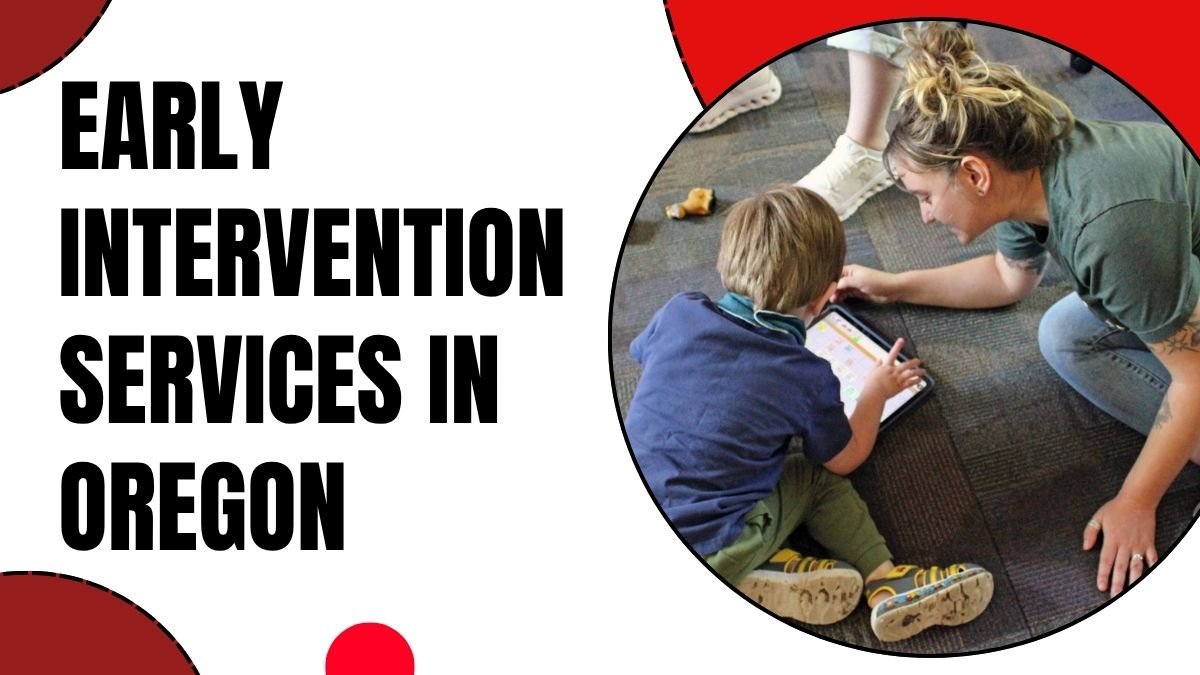When a child shows developmental delays—such as difficulties with speech, slow motor skills, challenges with social interaction, or learning difficulties—parents often become worried. Receiving the right support at the right time can significantly improve a child’s progress.
Early Intervention (EI) services in Oregon are designed for this purpose. They provide support to children under three years old and teach families how to strengthen their child’s learning and development in everyday environments.
This article explains the entire process in simple language, from the initial steps to ongoing services.
Step One: Contact Oregon’s Early Intervention Services
The first step in accessing Early Intervention services is reaching out to the right agency. You can contact them directly through:
- Oregon Department of Education (ODE)
- Your local Education Service District (ESD)
- Or a referral from your child’s pediatrician
You can express your concerns by phone, email, or through their website. Simply explain that you are concerned about your child’s development and would like a screening.
Request a Screening and Evaluation
After contacting them, the next step is a screening. This involves answering some questions about your child.
If this screening indicates that your child may have a developmental delay, a more comprehensive evaluation is conducted.
What happens during the evaluation?
- A team observes the child.
- They look at how the child plays, responds, walks, talks, and understands—all areas of development are assessed.
- Parents are also asked questions, as your experience is crucial to this process.
The evaluation usually takes place at home, daycare, or another comfortable environment to ensure the child feels at ease.
Creating an IFSP: An Individualized Plan for Your Child
If the evaluation determines that your child is eligible for Early Intervention services, the next step is creating an Individualized Family Service Plan (IFSP).
What is an IFSP?
This is a comprehensive document that includes:
- Your child’s strengths
- Areas where help is needed
- Family goals
- Strategies for your child’s development
- What therapies will be provided and how often?
Throughout this entire process, you, the service coordinator, and the specialist team work together to ensure the plan is perfectly suited to your child.
Initial Intake: The First Conversation
Before the IFSP is created, there is an initial conversation or intake meeting.
In this meeting, the Service Coordinator:
- Gathers information about your child’s history
- Listens carefully to your concerns
- Understands the family environment and daily routines
- Tries to find out what kinds of activities the child is most comfortable with
All of this information later helps in determining the appropriate services.
Evaluations by Specialists: Observations at Home or Daycare
A key part of early intervention is that services are provided in the child’s natural environment, meaning their daily surroundings.
Therefore, specialists often conduct evaluations at your home or daycare.
Evaluations may include:
- Speech Therapist
- Occupational Therapist (OT)
- Physical Therapist (PT)
- Developmental Specialist
They observe how the child learns, plays, and interacts with those around them.
Creating the IFSP: Charting the Path Together
Once the evaluation is complete, you and the entire team sit down to create the Individualized Family Service Plan (IFSP). This document outlines the services your child will receive, such as:
- Speech therapy
- Physical therapy
- Occupational therapy
- Parent coaching
Services are provided in a way that allows you to implement these strategies in your daily life.
Starting Services: Learning in Everyday Life
Once the IFSP is created, the service coordinator will work with you to:
- Begin therapy sessions.
- Teach you how to use daily activities to support your child’s learning and development
- Discuss challenges and provide practical solutions.
Often, specialists will visit your home once or twice a week to help integrate these strategies seamlessly into your child’s routine.
Progress Review: Meetings Every Six Months
Regular progress reviews are essential in early intervention services.
What happens during these reviews?
- Specialists show you the areas in which your child is making progress.
- You can share your experiences.
- The team discusses which strategies need to be modified or improved.
- If new goals need to be set, they are also included in the IFSP.
There is also an annual evaluation each year that reviews the entire year’s progress in detail.
Parent Training
A crucial aspect of early intervention is providing families with the necessary training.
You will learn how to:
- Encourage your child to speak.
- Perform activities at home to improve motor skills.
- Simple behavior management techniques
- Incorporate learning into daily routines.
This training provides long-term support for your child’s development.
Transition at Three Years: Referral to the School District
If your child is approaching three years of age, the team will inform you in advance and refer them to the local school district’s special education program based on their needs.
This process ensures that there is no gap in services for your child.
Additional Support: Collaboration with Organizations like FACT Oregon
Many parent support organizations in Oregon help families. FACT: Oregon provides parents with:
- Information
- Webinars
- Guides
- and emotional support.
This helps families better understand the process and become part of a support network.
Conclusion: Taking the Right Steps at the Right Time Can Change a Child’s Future
Early intervention services provide a strong foundation for any child’s development. With timely assessments, appropriate therapies, and family involvement, a child begins to understand and learn about the world in their own way.
Oregon’s program treats parents as partners, ensuring that every child can reach their full potential.
